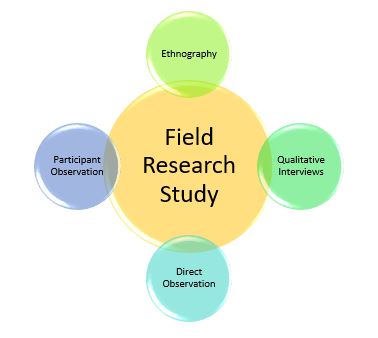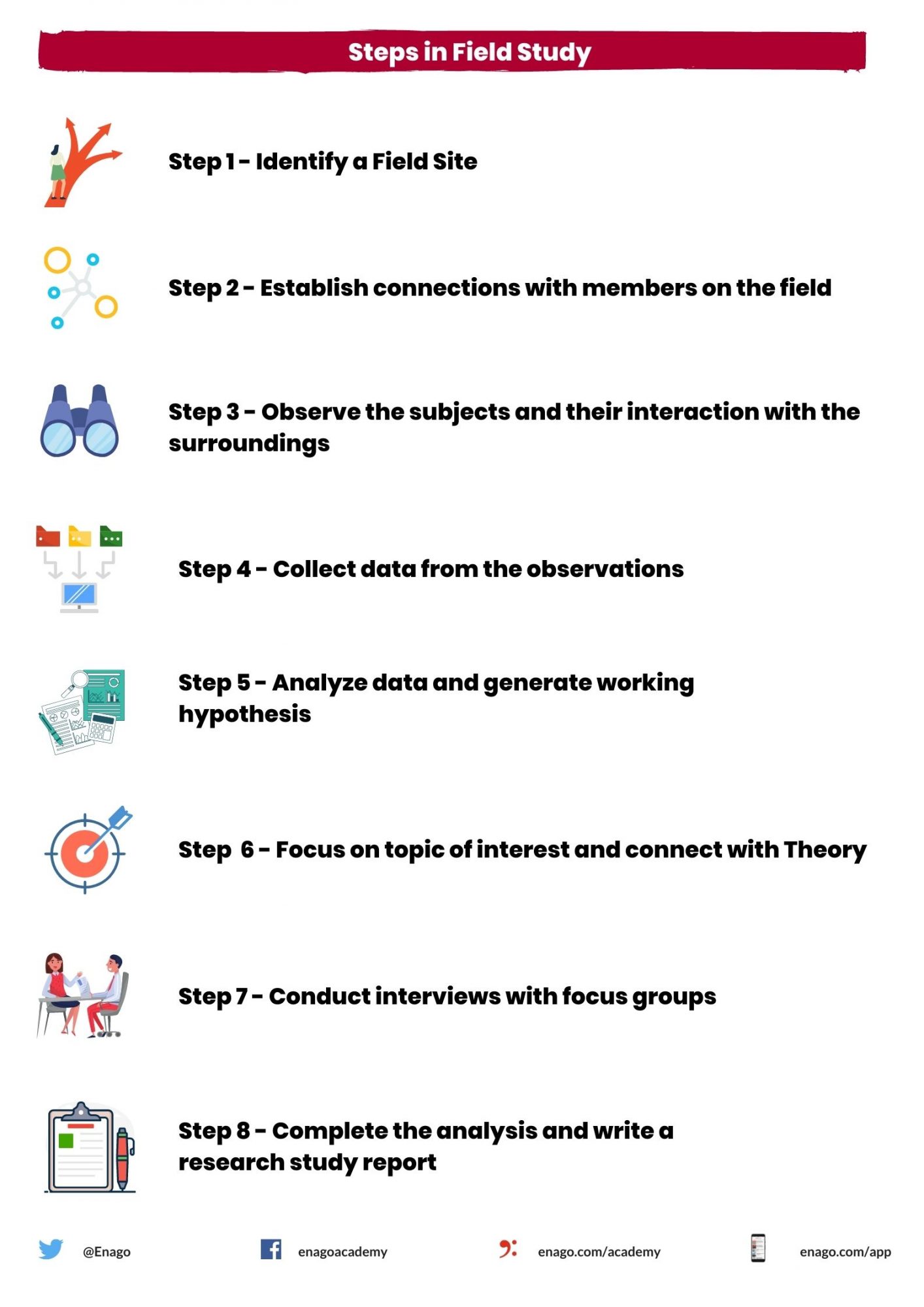How to Conduct Field Research Study? – A Complete Guide

There is a challenge in undergoing a research which involves a vast understanding of the environment and the study of subjects staying in that environment. Although the outcome of this study will help fill in the gaps evidently seen in the literature but the process involves a lot of planning. How does one plan such a humongous research study? In this article, we will discuss how to conduct a field research and what are the different methods used to streamline the field study!
Research is much more than performing the experiment and analyzing results. It involves gathering raw data and understanding the subject of research in its environment. These type of researches are more elaborate and are the reason for producing real information on a large scale.
What is Field Research?
Field research is a process where data is collected through a qualitative method. The objective of field study is to observe and interpret the subject of study in its natural environment. It is used in the field of study of humans and health care professions. Furthermore, it connects theory and practical research study by qualitatively analyzing the data.
Why to Conduct Field Study?
Field study allows researchers to identify and observe the subjects and helps draw correlations between subjects and surroundings, and how the surroundings may influence the behavior.
It gives an in-depth information on subjects because they are observed and analyzed for a long period of time.
Field study allows researchers to fill the gaps in data which can be understood by conducting in-depth primary research.
How is a Field Research different from a Lab Research?
|
Field Research |
Lab Research |
| Research is conducted in a natural setting | Research resembles the natural setting |
| Observes, analyzes and describes what exists | Considered as a controlled investigation wherein the researcher manipulates particular factors under study |
| Participants may or may not know about them being studied | Participants are informed based on the ethical norms |
| Descriptive, developmental, correlational and survey related research | Research is based on conclusion of the hypothesis |
| Results are detailed and vast | Results are specific and rely on the experiment performed |
Different Methods of Field Study Research

There are four main types of methods for conducting a field research.
1. Ethnographic Field Notes
This type of field work is particularly associated with field work that records and analyzes culture, society or community. Most commonly this method of research is used in social anthropology, societies and communities.
2. Qualitative Interviews
Qualitative interviews give researchers detailed information. This vast information is segregated in order to make inferences related to the sample group. This data is gathered by conducting interviews either informally, conversationally or in an open ended interview.
3. Direct Observation
Researchers gather information on their subjects through close visual observation. The researcher can record the observations and events as field notes holistically without a guided protocol. This form of research approach is termed as unstructured observation. However, in a structured observation the researcher uses a guide or set protocols to observe people and events. Furthermore, in direct observation the observer is detached and does not obstruct the research setup. It does not work as an alternative method for conducting field research, and rather works as an initial approach to understand the behavior of the research. This type of method is extensively used in fields of sociology and anthropology wherein the researchers focus on recording social life details in a setting, community, or society.
4. Participant Observation
In this research method, the researcher takes part in the everyday life of the members chosen for observation. This gives the observer a better understanding of the study. Additionally, these observation notes are a primary type of data which the researchers later develop into detailed field notes.

Steps to Conduct a Field Study
1. Identify and acquire researchers of the field
It is essential to acquire researchers who are specialized in the field of research. Moreover, their experience in the field will help them undergo the further steps of conducting the field research.
2. Identify the topic of research
Post acquiring the researcher, they will work on identifying the topic of research. The researchers are responsible for deciding what topic of research to focus on based on the gaps observed in the existing research literature.
3. Identify the right method of research
After fine tuning the research topic, researchers define the right method to approach the aim and objectives of the research.
4. Visit the site of the study and collect data
Based on the objectives, the observations begin. Observers/Researchers go on field and start collecting data either by visual observation, interviews or staying along with the subjects and experiencing their surroundings to get an in-depth understanding.
5. Analyze the data acquired
The researchers undergo the process of data analysis once the data is collected.
6. Communicate the results
The researchers document a detailed field study report, explaining the data and its outcome. Giving the field study a suitable conclusion.
Advantages of Field Study
The major advantage of field study is that the results represent a greater variety of situations and environments. Researchers yield a detailed data analysis which can be used as primary data for many different research hypotheses. Furthermore, field research has the ability to find newer social facts which the setting or community and the participants may be unaware of. Most importantly, there usually is no tampering of data or variable, as data is collected from the natural setting.
Disadvantages of Field Study
Various methods of field study involve researchers conducting research study and immersing themselves on the research field to gather data. This collection of data can be expensive and time consuming. Moreover, the information acquired is usually undertaken through observation of small groups and this may lack understanding and implications to the larger group of study.
Did you ever conduct a field research? How did you find the process? Which type of field research method did you use? Let us know about it in the comment below.










I have conducted field research, and I find the process both interesting and challenging. The type of field research methods that I have used in support of my mentors and senior staff include Appreciative Inquiry, Participatory Action Research, interviews, observations and focus group discussions.